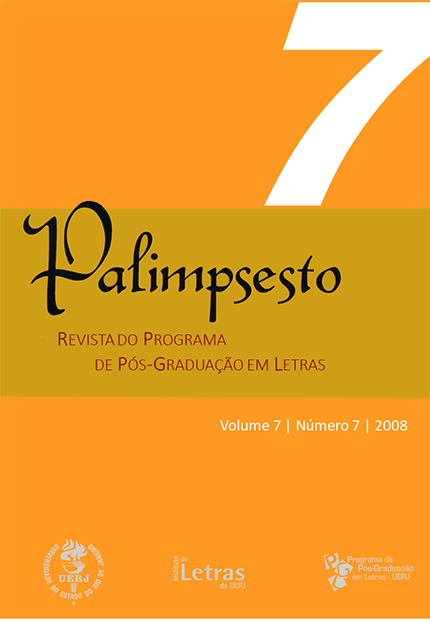Calisto Elói: o Portugal fáustico de Camilo Castelo Branco
DOI:
https://doi.org/10.12957/palimpsesto.2008.35796Palavras-chave:
Calisto Elói, Fausto, Portugal, Camilo Castelo BrancoResumo
Fausto é um personagem histórico-lendário de grande importância para as artes, a música e a literatura ocidentais no século XIX. Calisto Elói, protagonista do romance A Queda dum Anjo, de Camilo Castelo Branco, mais freqüentemente associado à figura de Dom Quixote de Cervantes, apresenta também, segundo Fidelino de Figueiredo, um caráter fáustico. Neste artigo, desenvolvo essa associação entre Calisto Elói e Fausto, baseando-me na leitura que Marshall Berman propõe do Fausto de Goethe, com o fim de evidenciar como o personagem camiliano simboliza a nação portuguesa em meados do século XIX.Downloads
Downloads
Publicado
Como Citar
Edição
Seção
Licença
A revista Palimpsesto publica artigos e resenhas inéditos, referentes as áreas de Letras e Linguística. Publica volumes mistos e/ou temáticos, com artigos e resenhas em português, inglês, espanhol e francês.
Autores mantêm os direitos autorais e concedem à revista o direito de primeira publicação, com o trabalho simultaneamente licenciado sob a Licença Creative Commons Attribution, que permite o compartilhamento do trabalho com reconhecimento da autoria e publicação inicial nesta revista.

Palimpsesto utiliza uma Licença Creative Commons - Atribuição-NãoComercial 4.0 Internacional.







